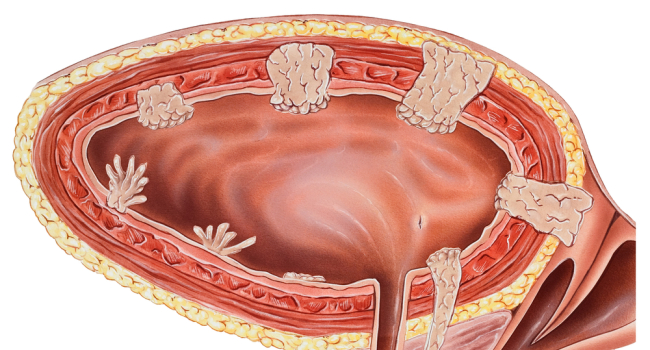American scientists from the University of California, San Francisco, have discovered an unexpected link between an aggressive form of bladder cancer and ovarian tumors. This discovery enabled them to apply advanced immunotherapy methods to treat a type of cancer that previously could only be addressed through surgery — and not always successfully. The study was published in the journal Nature Communications (NatCom).
These are histological variants of bladder cancer, accounting for about a quarter of all cases. They are difficult to diagnose and nearly impossible to treat with medication. These variants differ significantly from typical bladder cancers and are often excluded from clinical trials.
“These tumors look different under the microscope, but they are all dangerous and tend to recur. They do not respond to standard treatments,” said study co-author Sima Porten, a urologist.
Using their own single-cell RNA sequencing technology, the scientists studied tumor samples and made a surprising discovery: the cells in these tumors produced a protein called CA125, which is typically found in ovarian cancer. Normal bladder tumors did not express this protein. Most importantly, the researchers also found another protein on the surface of these cells — TM4SF1 — which has proven to be an ideal target for immunotherapy.
In the next step, the team developed CAR-T cells—immune cells engineered to recognize TM4SF1 and attack tumor cells. In mice, the therapy successfully destroyed aggressive tumors.
“It took us only a few years to go from patient biopsies to the first trials of the therapy. This represents a rapid advance in oncology,” said Dr. Franklin Huang, an oncologist and co-author of the study.
Histological variants of bladder cancer have so far been excluded from large-scale clinical trials due to their rarity and apparent heterogeneity. However, this may change with the development of targeted therapies based on specific molecular markers.
Researchers now hope to begin clinical trials in humans. CAR-T therapy has already proven effective against certain forms of leukemia, and it may now offer a treatment option for patients with aggressive bladder cancer.


